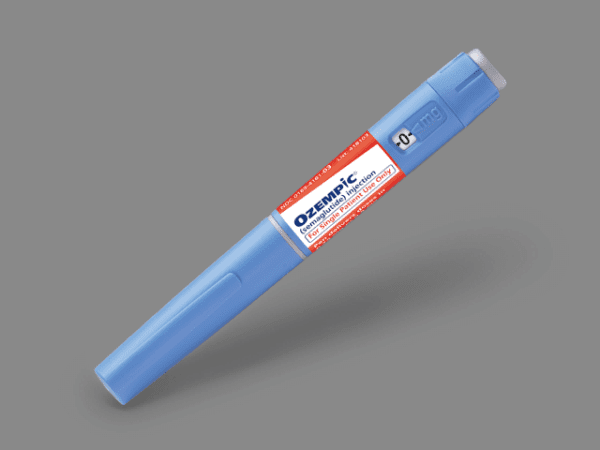Semaglutide Disease Interactions
There are 6 disease interactions with semaglutide.
- Suicidal behavior and ideation
- Thyroid cancer
- GI adverse events
- Hypoglycemia
- Pancreatitis
- Retinopathy
Semaglutide (applies to semaglutide) suicidal behavior and ideation
Major Potential Hazard, Moderate plausibility. Applicable conditions: History - Psychiatric Disorder, Depression
The use of semaglutide (Wegovy) for weight loss should be avoided in patients with a history of suicidal attempts or active suicidal ideation. Suicidal behavior and ideation have been reported in clinical trials with other weight management products. If used, monitor patients for the emergence or worsening of depression, suicidal thoughts or behaviors, and/or any unusual changes in mood or behavior. Discontinue use in patients who experience suicidal thoughts or behaviors.
Semaglutide (applies to semaglutide) thyroid cancer
Major Potential Hazard, Moderate plausibility. Applicable conditions: Thyroid Tumor
The use semaglutide is contraindicated in patients with a personal or family history of medullary thyroid carcinoma (MTC) or in patients with multiple endocrine neoplasia syndrome type 2 (MEN 2). Patients with elevated serum calcitonin or thyroid nodules noted on physical examination or neck imaging should be further evaluated. Counsel patients regarding the potential risk for MTC with the use of semaglutide and inform them of symptoms of thyroid tumors.
Semaglutide (applies to semaglutide) GI adverse events
Moderate Potential Hazard, Moderate plausibility. Applicable conditions: Vomiting, Diarrhea, Dehydration, Renal Dysfunction
There have been postmarketing reports of acute kidney injury and worsening of chronic renal failure, which may sometimes require hemodialysis, in patients treated with GLP-1 receptor agonists, such as semaglutide. Some events occurred without underlying renal disease, and the majority of events occurred in patients experiencing gastrointestinal reactions (nausea, vomiting, dehydration). It is recommended to monitor renal function when initiating or escalating doses of semaglutide in patients reporting severe adverse gastrointestinal reactions. No dose adjustment is recommended for patients with renal impairment.
Semaglutide (applies to semaglutide) hypoglycemia
Moderate Potential Hazard, Moderate plausibility.
The concomitant use of semaglutide with insulin and insulin secretagogues (e.g., sulfonylurea) may increase the risk of hypoglycemia. It is recommended to use caution and a lower dose of insulin or insulin secretagogue may be required to minimize the risk of hypoglycemia when these agents are used in combination with semaglutide.
Semaglutide (applies to semaglutide) pancreatitis
Moderate Potential Hazard, Moderate plausibility.
Pancreatitis has been reported with the use of semaglutide. It is recommended to carefully observe patients for signs and symptoms of pancreatitis (including persistent severe abdominal pain, sometimes radiating to the back and which may or may not be accompanied by vomiting) after therapy initiation. Discontinue treatment if pancreatitis is suspected and manage as appropriate; if confirmed, do not restart treatment with semaglutide and reevaluate for appropriate treatment.
Semaglutide (applies to semaglutide) retinopathy
Moderate Potential Hazard, Moderate plausibility. Applicable conditions: Diabetic Retinopathy
Semaglutide should be used with caution in patients with a history of diabetic retinopathy. Rapid improvement in glucose control has been associated with a temporary worsening of diabetic retinopathy. It is recommended to monitor closely for progression of diabetic retinopathy.
Switch to professional interaction data
Semaglutide drug interactions
There are 275 drug interactions with semaglutide.
Semaglutide alcohol/food interactions
There are 2 alcohol/food interactions with semaglutide.
More about semaglutide
- semaglutide consumer information
- Check interactions
- Compare alternatives
- Reviews (2,787)
- Latest FDA alerts (5)
- Side effects
- Dosage information
- Patient tips
- During pregnancy
- Support group
- Drug class: GLP-1 Agonists (Incretin Mimetics)
- Breastfeeding
Related treatment guides
Drug Interaction Classification
| Highly clinically significant. Avoid combinations; the risk of the interaction outweighs the benefit. | |
| Moderately clinically significant. Usually avoid combinations; use it only under special circumstances. | |
| Minimally clinically significant. Minimize risk; assess risk and consider an alternative drug, take steps to circumvent the interaction risk and/or institute a monitoring plan. | |
| No interaction information available. |
See also:
Further information
Always consult your healthcare provider to ensure the information displayed on this page applies to your personal circumstances.


